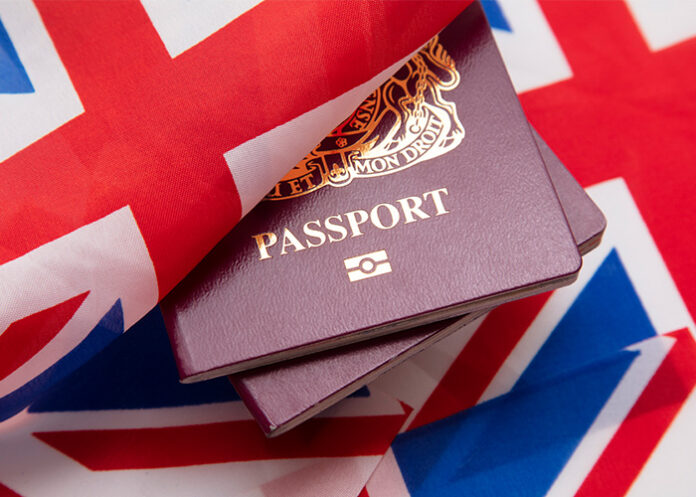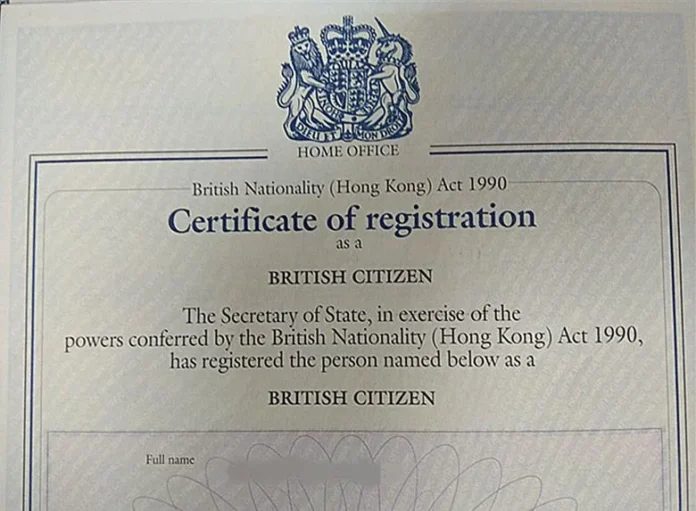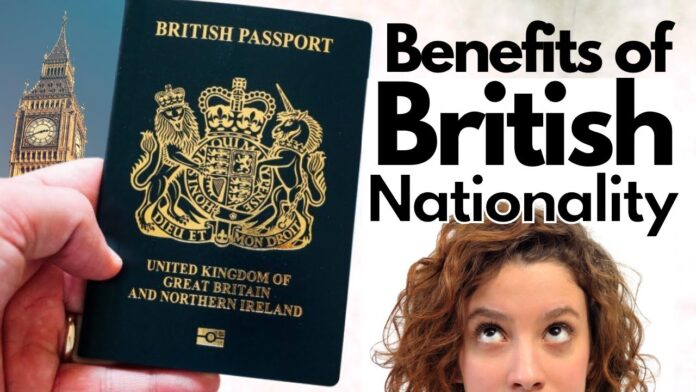British citizenship is a cherished aspiration for many individuals around the world. With its rich history, diverse culture, and global influence, the United Kingdom stands as a beacon of opportunity and belonging. Navigating the pathways to British citizenship is a journey that reflects the nation’s commitment to inclusivity and diversity. In this comprehensive article, we delve into the various routes available to acquire British citizenship, exploring the eligibility criteria, application process, and the significance of becoming a British citizen.
Understanding British Citizenship

British citizenship confers a range of rights and responsibilities that extend beyond being a resident. Citizens have the right to live and work in the UK without immigration restrictions, participate in elections, and access public services. They also carry the responsibility of abiding by the laws and regulations of the country. The pathways to British citizenship reflect the UK’s commitment to welcoming those who contribute to the nation’s progress, whether through residence, descent, or special circumstances.
1. Birthright Citizenship
Individuals born in the United Kingdom to parents who are either British citizens or settled in the UK are automatically granted British citizenship. This “birthright citizenship” principle ensures that those born on British soil or born to British citizens are considered citizens themselves.
2. Registration as a British Citizen

Registration offers a pathway to British citizenship for individuals who do not automatically acquire it. This route is often available to those who have strong ties to the UK through residence, family connections, or special circumstances. Eligible groups include minors born in the UK, individuals with British parents, and those who have lived in the UK for a significant period under specific visa categories.
3. Naturalization
Naturalization is the process by which eligible foreign nationals can become British citizens. To qualify, individuals usually need to have been living in the UK for a specified period, typically with indefinite leave to remain or settled status. The requirements include demonstrating good character, passing the Life in the UK test, meeting language proficiency standards, and fulfilling residency conditions.
4. British Overseas Territories Citizenship
British Overseas Territories Citizenship (BOTC) is granted to individuals connected to British Overseas Territories. This includes individuals born in certain territories or individuals with parents who hold BOTC. While BOTC doesn’t automatically grant British citizenship, it offers a pathway to registration as a British citizen.
5. Ancestral Descent
In some cases, individuals with a British-born grandparent may be eligible to apply for British citizenship through ancestral descent. This route recognizes the historical ties that connect generations of families to the UK.
6. Special Cases: Stateless Persons and Refugees
The UK also provides avenues for stateless persons and refugees to acquire British citizenship. These pathways reflect the nation’s commitment to protecting vulnerable populations and offering them a secure future.
The Application Process
Embarking on the journey to British citizenship entails more than a desire for a new nationality; it involves a commitment to understanding, integrating, and contributing to the fabric of British society. The UK citizenship application process is a pivotal step that underlines the significance of this transition. Let’s delve deeper into the intricate process that transforms aspiration into reality.
1. Gathering Documentation: Piecing Together Your History
The foundation of your British citizenship application rests on the documentation you provide. This includes your residence history, identification documents, proof of settled or indefinite leave status, and any other relevant records. These documents serve as a testament to your ties to the UK and substantiate your eligibility for British citizenship.
2. Meeting Eligibility Criteria: The Key to Unlocking Citizenship
Eligibility criteria vary depending on the pathway you’re pursuing. Whether you’re applying through naturalization, registration, ancestral descent, or any other route, it’s crucial to meticulously assess the requirements and ensure that you meet them. Eligibility criteria encompass factors such as the length of residence, good character, language proficiency, and adherence to immigration rules.
3. Submission of Forms: Crafting Your Narrative
Forms are the channels through which you communicate your background, intentions, and commitment to British values. These forms typically require detailed information about your residence history, family connections, and your intention to settle in the UK. The accuracy and completeness of these forms play a significant role in the assessment of your application.
4. The Life in the UK Test: Embracing British Culture

The Life in the UK test is a cornerstone of the application process. It evaluates your understanding of British society, history, culture, and values. Passing this test demonstrates your commitment to integrating into British life and engaging with the community.
5. Language Proficiency Requirements: Bridging Communication
Language proficiency is another crucial aspect of your application. Demonstrating proficiency in English is often a requirement, ensuring that you can effectively communicate and engage in daily life in the UK. Depending on your circumstances, you might also need to meet specific language requirements to qualify.
6. Good Character Assessment: Upholding Values
The assessment of your “good character” is an integral part of the application process. This evaluation examines your criminal record and any past behavior to ensure that you align with the values and principles upheld by British society.
7. Timeline and Processing: Patience and Preparation
The application process for British citizenship requires patience. The timeline for processing can vary based on factors such as the pathway, the complexity of your case, and the volume of applications. It’s essential to plan ahead, gather all required documentation, and submit your application well in advance to ensure a smooth process.
8. Seeking Professional Assistance: Navigating Complexity
The application process can be intricate, especially for those unfamiliar with legal procedures or specific requirements. Seeking guidance from immigration professionals or legal experts can provide valuable insights, ensuring that your application is accurate, complete, and aligned with the expectations of the UK immigration authorities.
Benefits of British Citizenship

Becoming a British citizen opens doors to a multitude of opportunities. Citizens can live, work, and study in the UK without immigration restrictions. They have the privilege of participating in local and national elections, influencing the democratic process. Additionally, British citizens gain access to public services, healthcare, and social benefits. Moreover, British citizenship signifies a sense of belonging and identity, enabling individuals to connect with the nation’s history, culture, and shared values.
Conclusion
The pathways to British citizenship reflect the UK’s commitment to diversity, inclusivity, and the contributions of individuals from around the world. Navigating these routes requires a thorough understanding of eligibility criteria, application procedures, and requirements. Whether through birthright, naturalization, or ancestral ties, each pathway signifies a unique journey towards embracing the privileges, rights, and responsibilities that come with British citizenship. As individuals embark on this transformative journey, they become part of the tapestry of British society, contributing to its growth, progress, and global influence.









